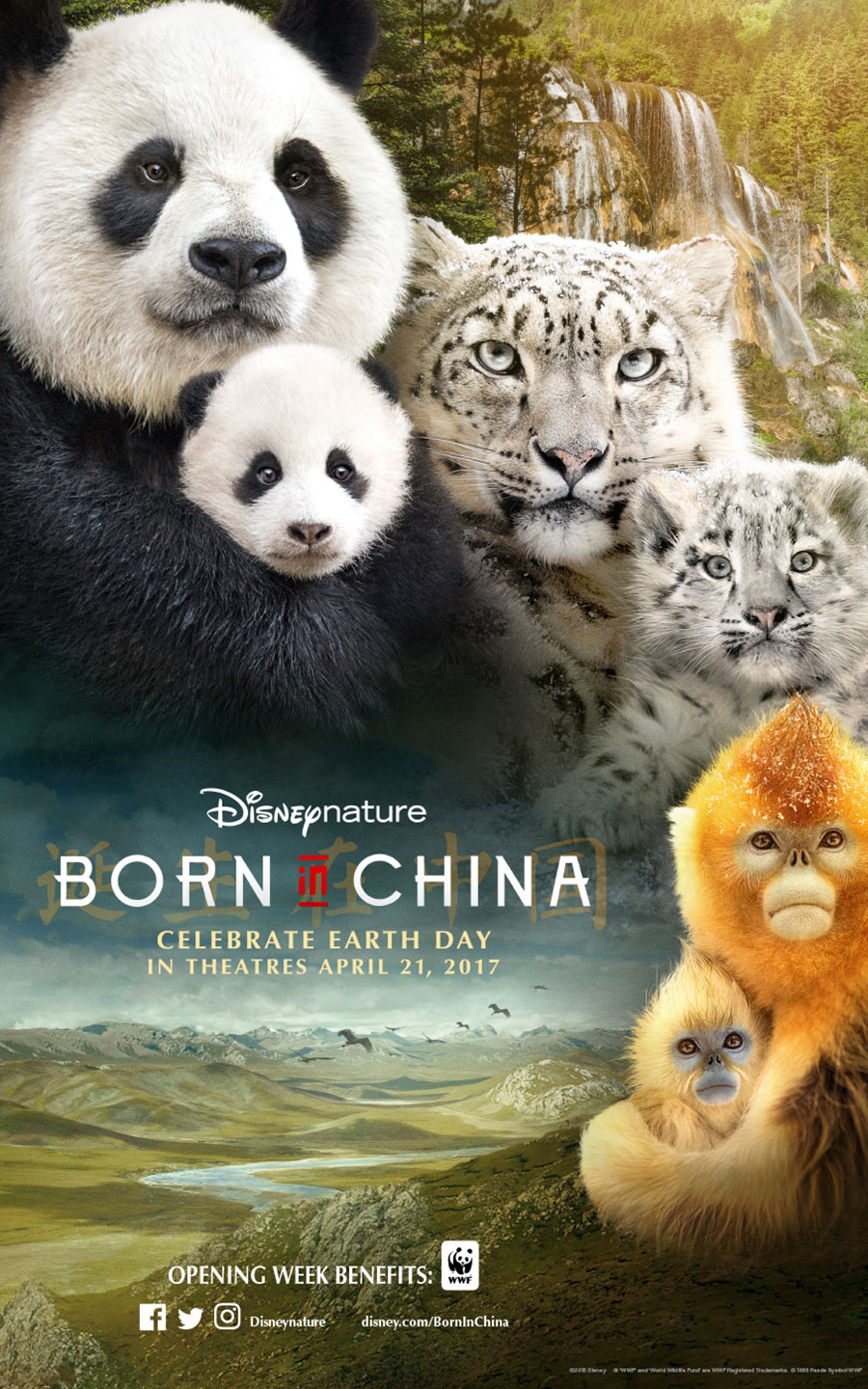 So, I was recently watching the latest Disneynature documentary, Born In China. I am a lover of nature and I enjoy opportunities to explore different environments.
So, I was recently watching the latest Disneynature documentary, Born In China. I am a lover of nature and I enjoy opportunities to explore different environments.
The film tells the story of three animals and their families – a snow leopard, a giant panda, a golden snub-nose monkey. It was fascinating to watch the family dynamics and to learn about how these creatures interacted with each other and their surroundings. Did you know that a female giant panda lives in solitude unless she has offspring to care for? It was news to me!
Anyway, I noticed something near the end of the film that came as somewhat of a surprise to me. I’ll try not to give too much away in case you’re planning on seeing it if you haven’t already.
The snow leopard, Dawa, a gorgeous creature, and her two young daughters had been having a rough time of it. They were run out of their territory by a rival and, with winter upon them, food was scarce.
That was rather poetic, wasn’t it?
Anyway, a herd of chiru – which I believe is the Chinese name for yak, but I could be mistaken –passes by and Dawa takes her shot at a young one as it would be easier to overtake than a full-sized adult. Of course, the baby chiru’s mother doesn’t approve and defends her child against the intruder.
In a moment of clarity, I found myself being aware of my thoughts and I wondered why I was rooting for Dawa. Didn’t the baby chiru have its own right to survive? Didn’t the mother chiru have the right to take care of her child?
And then it struck me.
It was all about perspective. It was about whose story was being told. The chirus may have had just as perilous of a journey, the mother likely cared for her offspring just as much, but because I knew more about the snow leopard and her cubs, because they had the cameras on them and were being viewed through a sympathetic lens, I wanted them to win. The baby chiru was not a sympathetic character in my eyes. It was nothing more than a walking meal.
In our art, we often must choose a perspective from which to view the situation, and we need to be aware of the effect the perspective has on the story and the audience, good or bad. We, as artists, have the power to manipulate thoughts and emotions. Who do you want the audience to relate to? What do you want them to take away from the experience and what role does perspective have in that? Every character in a narrative has their own story and their actions can often be viewed in more than one way. A somewhat obvious but fascinating notion!
On a personal level, it’s also something to be aware of as we go through our days. A person who may be cast merely an extra in the film of your life has their own rich world of experience and that awareness can help us treat others with a little more consideration and compassion.
In Swimming Tigress news, I uploaded several new images to Pinterest –inspiring memes that you might get something out of! New voice clients, lots of new music coming up – goodness all around! And don’t forget to visit the Swimming Tigress Shop for inspiring books like A Candle At Both Ends and Mocha and the Moon, fun sheet music like Brain Freezes and my children’s album, Ladybug Crossings!
Thanks for reading and have a great day!
Tiffany

Leave a Reply